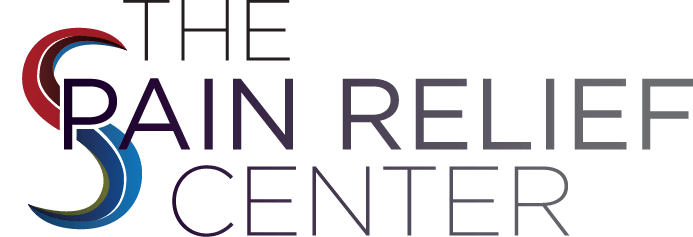DISC DENERVATION SURGERY IN PLANO AND FRISCO
Pain Management for Chronic Back Pain
MIGRAINE TREATMENT OPTIONS

Suffering from chronic pain anywhere in the body can limit your ability to live your life to the fullest. This is especially true when it comes to chronic low back pain. Luckily, at The Pain Relief Center, we have a plethora of solutions for many different kinds of pain, including back and neck pain. One of these solutions is called disc denervation. It is a safe, non-invasive way to treat pain that originates from facet joints in the spine. If you suffer from facet joint pain, The Pain Relief Center has solutions for you. To schedule an appointment with us, please call our office at 214-709-1904 today.
What Is Disc Denervation?
Back and neck pain can originate from many different sources, including the facet joints in your spine. These joints connect the bones in the spinal cord, allowing it to twist and bend rather than stay stiff. Nerves run through and around these joints, then travel to the body’s extremities. The nerve supply from the spine allows the rest of the body to move and feel sensations. A nerve in the spine that connects other nerves is sometimes referred to as a ramus communicans nerve.
If a condition, injury, or disease causes damage to the spine, this could result in a compressed nerve causing pain that could potentially spread (or radiate) to other parts of the body. Facet joint nerve compression can result in back pain, neck pain, or pain that travels to the shoulders and arms.
Disc denervation is a pain management procedure that aims to provide significant relief from facet joint pain. Denervation procedures use radiofrequency ablation (RFA), which is also called radiofrequency denervation. It is a minimally invasive procedure that can work as an alternative to surgery, as well as provide effective pain relief without damaging adjacent nerves.
How Does Disc Denervation Work?
Disc denervation with RFA uses radio waves to send a mild electrical current into the nerve tissue in the spine. The heat generated by the electrical current focuses on a small area of nerve fibers, destroying the nerves. This will stop the nerve from sending pain signals back to the brain. Your pain physician may refer to this as nerve burning.
When the nerves cannot send pain signals to the brain, this prevents patients from feeling pain in that area. A disc denervation procedure, according to several studies, is an effective alternative to back surgery for facet joint pain. In fact, many pain management specialists believe it to be equally effective when compared to reconstructive surgery.
Some of the advantages that disc denervation has as a treatment are as follows.
- It is a highly controlled procedure that helps reduce the risk of damaging any surrounding structures or underlying tissue.
- When compared to other forms of pain relief, such as injection therapy, disc denervation tends to be more effective in providing long-term pain relief. Other conservative treatments often only provide short-term pain relief.
- Unlike with back surgery, it is far less risky to repeat disc denervation if the pain recurs in your spinal column.
How Is Disc Denervation Performed?
Generally, the entire procedure only takes around an hour. The patient will lie face down on the procedure table. Then, the doctor administers a local anesthetic. Local anesthesia helps to keep patients comfortable during the procedure. While others only need a topical local anesthetic, others prefer full sedation.
We begin by making a small incision in the back, through which we insert the fluoroscopic guidance device. This device has a very small camera and light that allows us to see and guide the electrode to the right spot. Once the electrode is in place, the doctor delivers electrical stimulation to the area, which then destroys the nerves. This completes the procedure.
Risks of Disc Denervation
As with most medical procedures, even simple electrical stimulation has its risks. While complications are rare, it is still important to understand the risks before undergoing any type of procedure. Some of the less serious risks are infections, excessive bleeding, or nerve damage that was not intended. The most common feedback that we receive from patients is that they feel a little post-procedure discomfort. This should quickly resolve with time, but we recommend speaking with your doctor if the pain persists.
Is Denervation Considered Surgery?
No. In fact, it has several advantages over surgery, such as being able to treat people on an outpatient basis. Although surgery can also provide much-needed relief from chronic neck and back pain, many people prefer to avoid the lengthy recovery process. Intradiscal electrothermal therapy (disc denervation) has significantly reduced or eliminated pain in many of our patients, allowing them to return to their normal activities faster than surgery would allow.
Who Can Benefit from Disc Denervation?
Most patients who undergo disc denervation experience at least some decrease in their pain levels. However, every person’s body is different. Each body reacts and responds differently to treatments, so what works for you may not work as well for another person. That being said, most people only feel the full benefits of disc denervation once two to three weeks have passed after their procedure. Additionally, the length of time that people have pain relief from the procedure varies greatly. Some may feel relief for only a few weeks, while others may feel relief for six or more months. Others may notice no benefit at all from the treatment.
Also, nerves will often grow back over time, even after undergoing nerve burning. Even though the process of regrowth is slow, many patients feel a resurgence of their pain during this time. However, as we mentioned before, the denervation process can be repeated several times as the pain returns.
Conditions Treated with Disc Denervation
Disc denervation is one of the many treatment options that we offer for neck and back pain at The Pain Relief Center. Many people wonder what specific conditions it can be used to treat. Below, we provide a brief list of what may be treated with this procedure.
- Unresponsive neck pain
- Pain caused by a bulging disc
- Degenerative disc disease
- Chronic pain in the back or neck
- Disruption of the nerves running through the spine
- Peripheral nerve pain
- Nerve impingement
How Can Disc Denervation Help Me?
The best way to determine whether or not disc denervation is a valid treatment option for you is to speak with a qualified pain management specialist. Our specialists at The Pain Relief Center will identify the source of your pain before developing a treatment plan. A patient who suffers from degenerative disc disease or herniated discs is likely to benefit and feel pain relief from denervation. However, not every patient’s body reacts in the same way. This is why we recommend scheduling an evaluation prior to setting your sights on one treatment in particular.
How Long Does It Take to Recover from Disc Denervation?
The recovery process for denervation varies from patient to patient. However, most of our patients fully recover within one to three weeks. Immediately following the procedure, your doctor will have you rest a while as they monitor your vital signs and your blood pressure. This resting period usually lasts around 15 minutes. Once you receive the all-clear from your doctor, you should have a friend or family member drive you home. If you experience any discomfort, take this as a sign that you need to rest.
Is Radiofrequency Denervation Painful?
No. Patients are numbed or sedated before the procedure takes place, so they should feel no discomfort. However, they may feel numbness or burning in the affected area after the procedure. This is normal and can be treated with 15-minute sessions with ice packs.
Do You Suffer from Debilitating Back Pain?
If you suffer from extreme pain, it may be time to consider speaking with a Dallas pain management doctor. At The Pain Relief Center, we evaluate each patient on an individual basis before developing a customized treatment plan that meets their needs. Sometimes, we even recommend a combination of one of our treatments and physical therapy. To learn more about whether or not you are a good candidate for disc denervation, contact our office to schedule an appointment. Call to schedule your conversation today at 214-709-1904.



